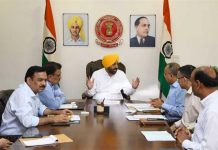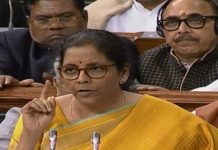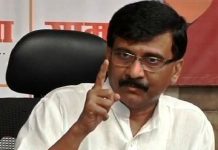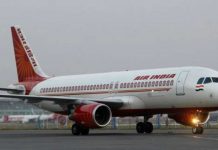The fact that the election commission chose to count votes in private and took inordinately long to do so has also raised suspicions that the results may have been “managed”. Several non-PPP, non-PTI types have told me that the administration across the Punjab province, which is the largest of all Pakistani provinces and has the most seats in the National Assembly, has been blatantly supportive of candidates of the PML-N, which is essentially a Punjabi party led by Sharif, as opposed to the PPP, which is predominantly a party of the southern Sindh province. I have been told strange stories of how judges of the lower judiciary, tasked with scrutinising nomination papers in Punjab, rejected them on a whim. “They would ask the candidates to recite from the Quran and reject those who didn’t satisfy them,” said Pal.
Then, of course, is the influence and the interests of the Americans. Incredulous Pakistanis ask why would US President Barack Obama rush to congratulate Sharif on winning the election even though the final results had yet not been officially announced at the time, and that Sharif was yet to figure out, as he still is, his coalition since he wasn’t going to win a majority on his own. That Indian Prime Minister Manmohan Singh and the Saudi Arabian regime, both close confidantes of the US administration, did likewise on the trot lent credence to their belief that America wants Sharif to lead the next government in place of President Asif Ali Zardari’s discredited PPP.
Indeed, Sharif appears to have achieved a unique feat by appearing to be the right man (or the least untrustworthy) at the right time for a host of players, domestic and international, namely, the Pakistan Army, the US and its allies, the Sunni world led by Saudi Arabia, and India. While realising that the PPP had lost the people’s confidence in Pakistan, the US has been wary of Imran Khan, whose politics has hinged unwaveringly on opposing bombings by unmanned US aircraft, the drones, in the Taliban-strong areas in the west. In contrast, Sharif now has something for everyone.
To the US, which appears headed to withdrawing its troops from the neighbouring Afghanistan next year, Sharif is the man who may hold traction with the Afghan Taliban whose involvement would be inescapable in stabilising any regime at Kabul once the Americans leave. For India, Sharif is the one player who could perhaps make genuine peacemaking efforts as, unlike Zardari and his PPP, Sharif carries some influence among the Islamic fundamentalists who strut Pakistan’s politico-religious firmament. And for Saudi Arabia, none can be better than Sharif for this is payback time: Sharif had availed of the Saudi royal hospitality for his years in exile from 1999 to 2007.
Even the ubiquitous national security agencies of Pakistan, the most well-known of which is the Directorate of the Inter Services Intelligence, or the ISI, haven’t had much reason to raise the flag over Sharif. The “agencies”, as the spectrum is collectively referred to in Pakistan, have had their hands full in the election weeding out candidates that might ask uncomfortable questions about their entirely dubious role in, among others, facilitating the Americans’ activities on Pakistani soil, both overt, which include their War on Terror along the border with Afghanistan, and covert, including espionage, which has involved a violation of Pakistan’s territorial sovereignty and laws.
The starkest example of this is the National Assembly election in the faraway constituency of Wana in South Waziristan in the west, where the Afghan Taliban have been in numerous presence since being ousted from Kabul by the US invasion in 2001. On 12 May, news snippets announced that a candidate named Ali Vazir, who is a tribal lawyer and a grassroots Marxist activist, was on course to winning the election. As news networks obsessed over the PML-N victory in Pakistan, a clutch of Marxist activists in Lahore strained to stay connected with Vazir via a landline telephone at a gas station in Wana, fearful that the agencies might step in to prevent him from winning.













